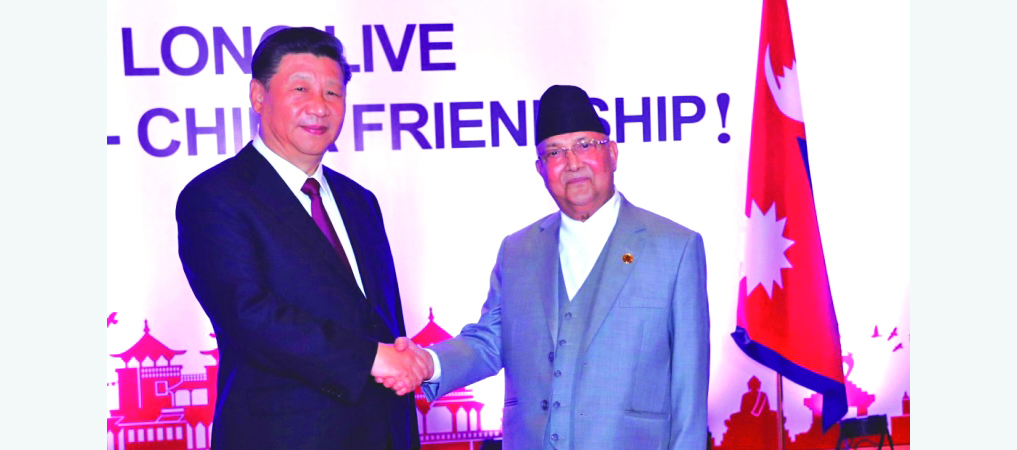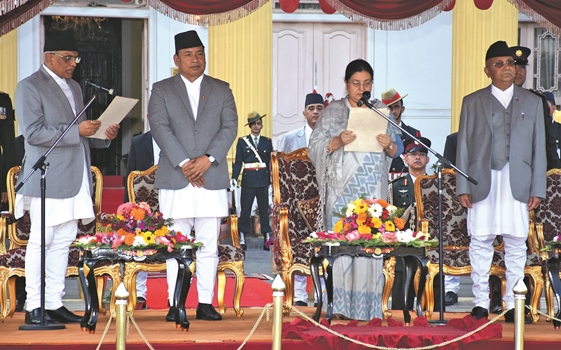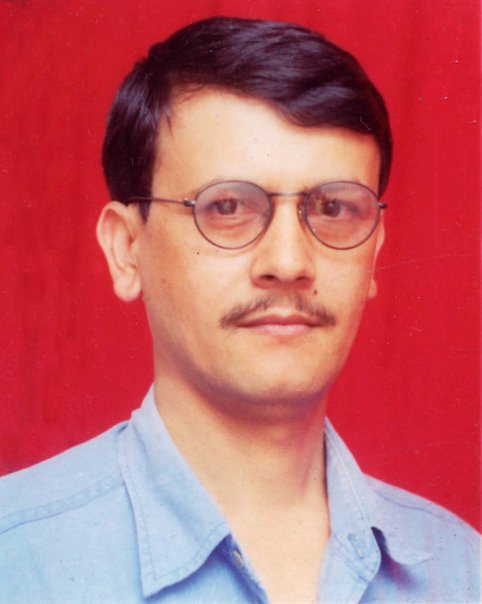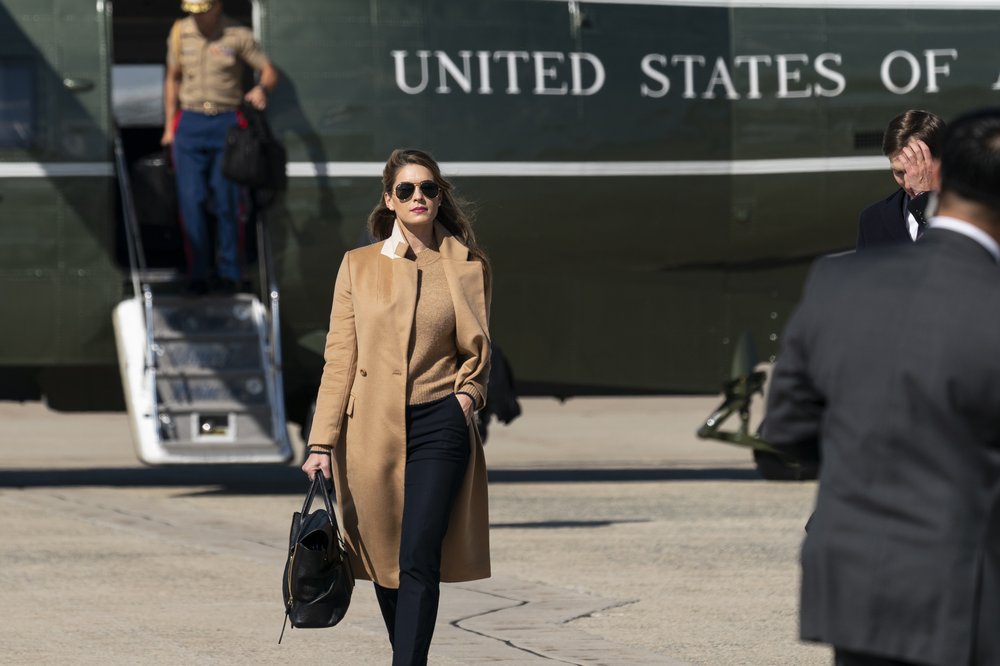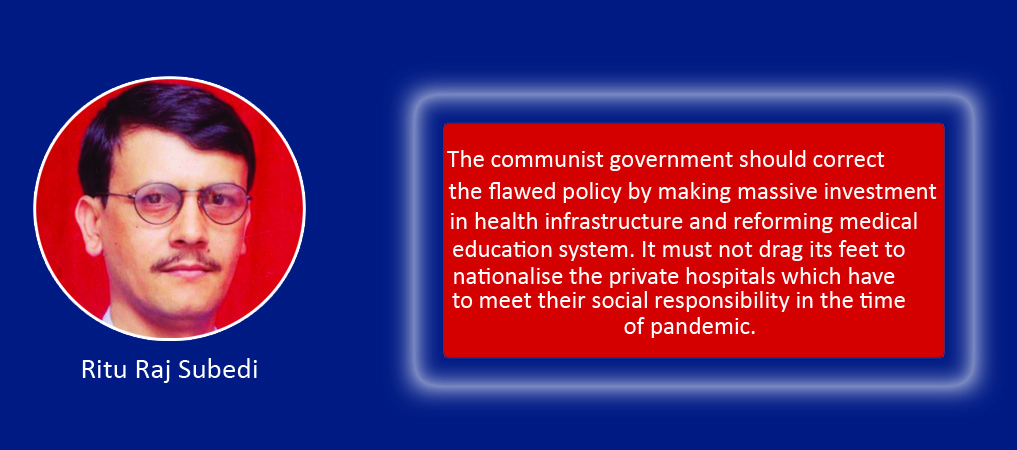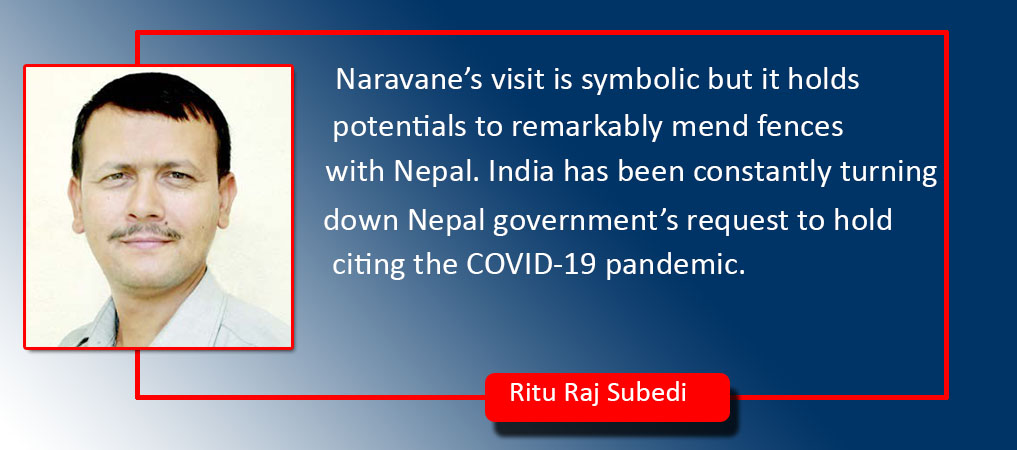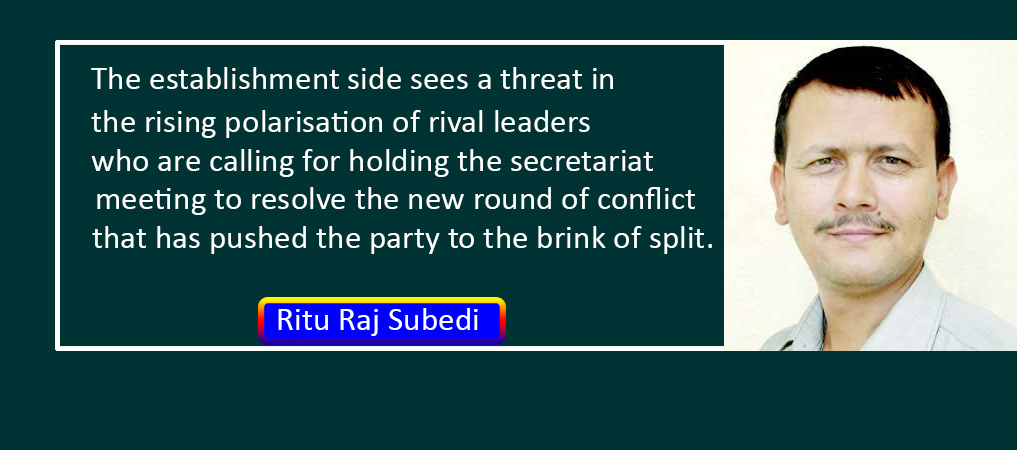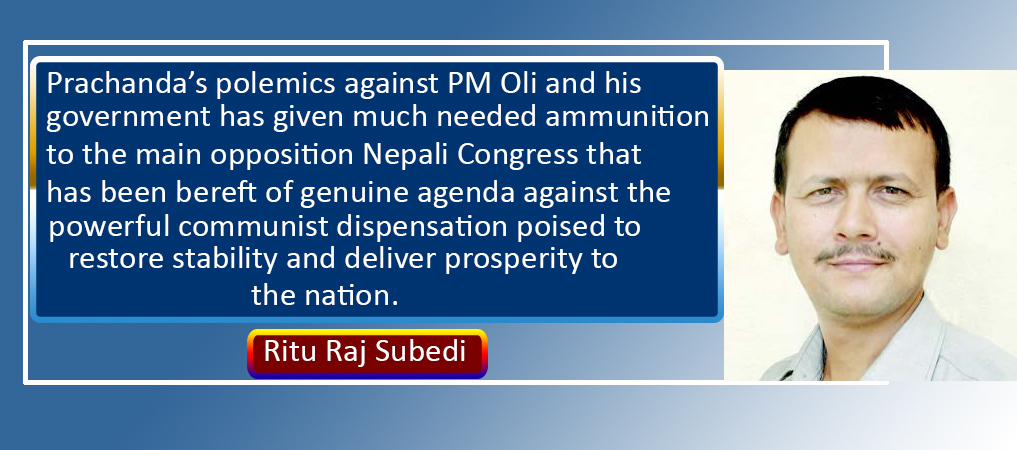The Tragic End Of NCP

Ritu Raj Subedi
We may call it a brutal joke on Nepali communist movement. South Asia’s largest communist force - Nepal Communist Party (NCP) created through the merger of erstwhile NCP-UML and NCP-Maoist Centre in May 2018 - broke in two literally at the stroke of a pen of two judges of the Supreme Court (SC). The SC ruling did not only invalidate the very nomenclature – NCP – but it also asked its constituents – UML and Maoist Centre – to return to their status quo ante, offering a 15-day time to apply at the Election Commission (EC) with another name if they still wanted unity. Though the verdict gave justice to a small communist group, it has sent shockwaves across the political spectrum owing to its serious implications in the national politics. The decision was not merely the straw that broke the camel’s neck. In fact, the NCP had already been politically and emotionally fractured in the aftermath of the dissolution of House of Representatives (HoR). But the SC’s ruling finally drove a nail into the coffin of the unified party.
The 33-month-long unity of UML and Maoist Centre has broken up before it completed the tricky unity process. It was slated to hold unity convention in April this year where it was supposed to churn out common ideology and tactical line. Now all these schedules have gone down the tube, thanks to its fissiparous leaders and the SC verdict which, some claim, smacks of judicial activism and interferes in the political territory. The verdict also exposes fragility of seven decades long Nepali communist movement that tends to be more divisive rather than unified.
Now it has become obvious that the unity of two parties was carried out in haste without settling the core ideological questions and developing institutional mechanisms needed to resolve the internal contradictions. It was the unity orchestrated by two leaders – KP Oli and Prachanda – while large segments of two parties were not involved in the rigorous discourse of unification. The desire to augment power was the main imperative behind the quick unification drive. Madhav Kumar Nepal faction was sidelined by the Oli-Prachanda leadership, giving rise to dissatisfaction and fatal factionalism. As Oli and Prachanda started to cross swords, the party unity ran into roadblocks and eventually collapsed.
Short-lived joy
The electoral alliance of the two parties forged ahead of the historic polls in 2017 enabled them to pull off resounding victory. It is not only the rank and file of both parties but even the commoners were upbeat about the prospect of durable stability and prosperity in the country with the NCP commanding near two-thirds majority in the federal parliament. But the party workers’ euphoria and enthusiasm generated by the unity began to gradually disappear as the intra-party bickering deepened. Their initial happiness was superseded by frustration, psychic complexes, condescending attitude and mutual mudslinging.
The NCP frittered away the historic opportunity of nation-building owing to the government-party conflict. While the government leadership blamed that the party did not cooperate with the former, the party stalwarts accused it of not following the party’s policy, statute and norms. Amidst the intense blame game, Prime Minister KP Sharma Oli dissolved the HoR on December 20 last year. His opponents Pushpa Kamal Dahal Prachanda, Madhav Kumar Nepal and Jhalanath Khanal resorted to street agitation against the House dissolution. When the SC reinstated the HoR, Prachanda-Nepal faction hailed it as the defeat of regression and the victory of forward-looking thought. The House restoration was a setback to PM Oli and gave an upper hand to his nemeses in the party. They had expected the PM would resign on the moral ground, allowing the crisis-ridden politics sail smoothly.
However, the SC verdict over the dispute of NCP name on March 10 turned the tables. It gave much-needed lifeline to the embattled PM and put his rivals on the defensive. It kept Prachanda’s position in the Maoist Centre intact but the situation of Nepal, Khanal and his colleagues is fraught with challenges in the UML as PM Oli’s latest move put them in a tight corner. One verdict of SC revived the House while another delivered the coup de grace to the NCP. At the height of intra-party squabble, PM Oli and his followers seemingly wanted the revival of UML to chart a new political course. This can be gauged when they toasted over the court’s verdict on the NCP, laying bare the defective unification processes and shaky foundation of the unified party.
With the tragic end of NCP, the revived UML is also on the verge of vertical split. The other day PM Oli chaired an emergency central committee meeting of available CC members to amend the statute and take a number of sweeping decisions. It scrapped the provision of office-bearers except that of general secretary and announced the dates of party convention. The meeting nominated 23 former Maoist leaders to the central committee as a reward to their support to Oli at the moment of utter political crisis. Much to the ire of Nepal-Khanal faction, Oli has unilaterally renamed the chiefs of provinces, withdrawing the responsibilities given to its leaders. In retaliation, Nepal-Khanal faction dismissed Oli’s series of decisions and announced to form parallel committees across the country and hold a national gathering this Wednesday to devise further strategy.
Slippery slope
Oli’s drastic move seeks to avenge on his bête noires before they come to attend the party’s CC meeting on March 20. He seems to be confident of reorganising the UML on his own but analysts argue his step has effectively closed the door for reunion between the leaders and cadres of the two rival groups. Three years after the unification of UML and Maoist Centre, Nepali communist movement is now on the slippery slope heading towards a total collapse. The emotional division in the UML will further undercut the power and craze of Nepali communists because it is considered the country’s most organised and well-functioning political force. As the UML leaders are poles apart, main opposition Nepali Congress and other parties stand to reap political windfall in the upcoming polls.
(Deputy Executive Editor of The Rising Nepal, Subedi writes regularly on politics, foreign affairs and other contemporary issues. subedirituraj@yahoo.com)
Recent News

Do not make expressions casting dout on election: EC
14 Apr, 2022
CM Bhatta says may New Year 2079 BS inspire positive thinking
14 Apr, 2022
Three new cases, 44 recoveries in 24 hours
14 Apr, 2022
689 climbers of 84 teams so far acquire permits for climbing various peaks this spring season
14 Apr, 2022
How the rising cost of living crisis is impacting Nepal
14 Apr, 2022
US military confirms an interstellar meteor collided with Earth
14 Apr, 2022
Valneva Covid vaccine approved for use in UK
14 Apr, 2022
Chair Prachanda highlights need of unity among Maoist, Communist forces
14 Apr, 2022
Ranbir Kapoor and Alia Bhatt: Bollywood toasts star couple on wedding
14 Apr, 2022
President Bhandari confers decorations (Photo Feature)
14 Apr, 2022



